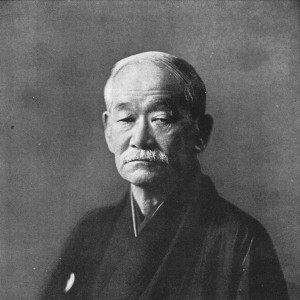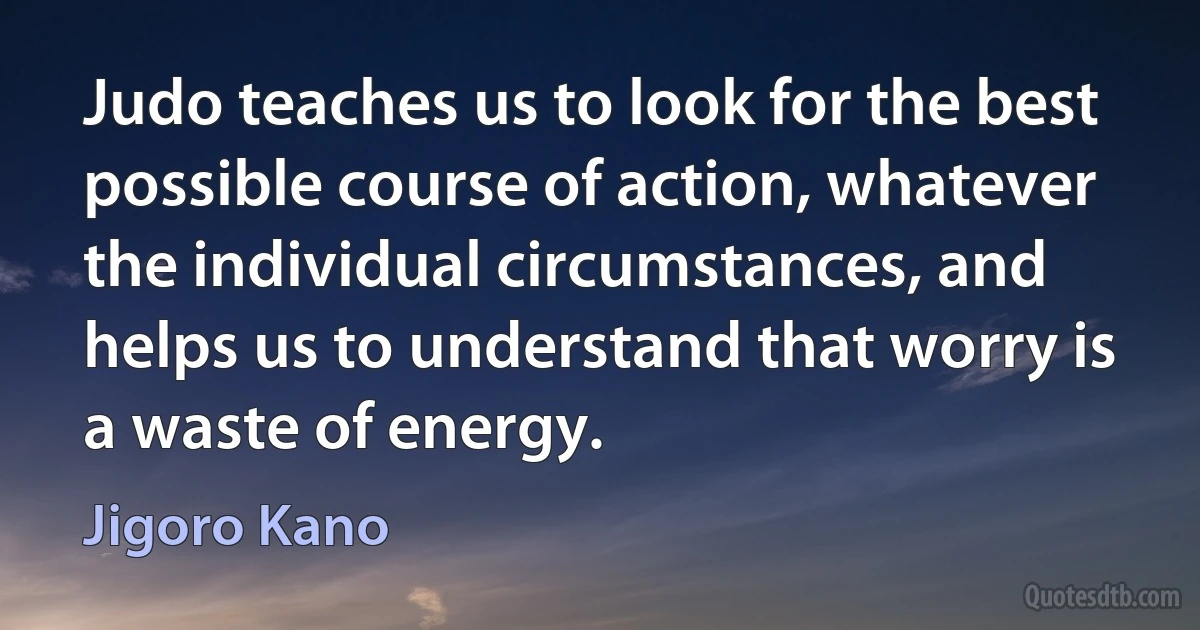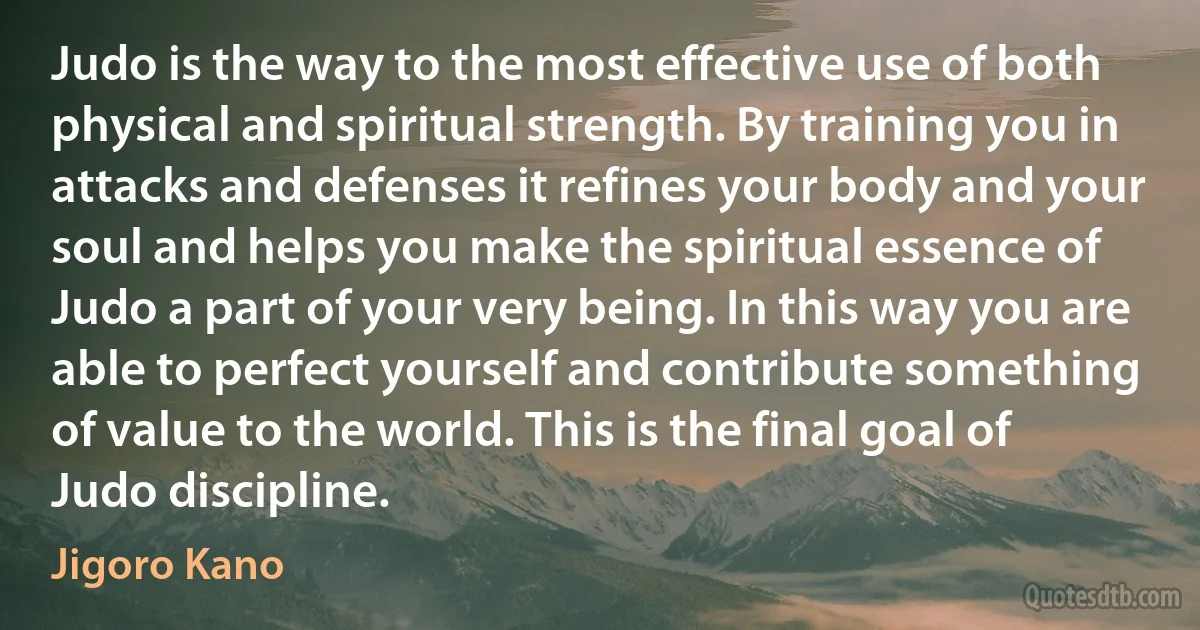Jigoro Kano quotes
Jigoro Kano was a Japanese educator and the founder of judo, a modern martial art and Olympic sport. His innovative approach blended traditional jujutsu with principles of physical and moral education. He became a pioneering figure in Japanese sports and is celebrated for promoting international understanding through martial arts. Here are 25 of his quotes:
Recently in our country, there has been a steadily increasing number of people who dislike work and pursue leisure and extravagance. Almost everywhere individuals and organizations are fighting with resultant loss of energy that is needed for positive action. In order to save them from this situation, a principle of judo, based on the maximum efficiency concept should be applied as one aspect of modern society and as a natural result of the application of the principle of maximum efficiency, a mutual welfare and prosperity is believed to be the only effective way to ease and neutralize the forces among these individuals and organizations.

Jigoro Kano
Another point is the meaning of professionalism. With Judo, we have no professionals in the same sense as other sports. No one is allowed to take part in public entertainment for personal gain. Teachers certainly receive remuneration for their services, but that is in no way degrading. The professional is held in high regard like the officers of a religious organization or a professor in the educational world. Judo itself is held by us all in a position at the high altar. To reconcile this point of view with the Western idea is difficult. Success or a satisfactory result of joining the Olympic Games would much depend on the degree of understanding of Judo by the other participating countries.

Jigoro Kano
In our society today, when we teach the righteous way of life based upon the Theory of judo which embodies the principles of continuous improvement of society, then this righteous life provides a basis of definite proof of this principle and unifies the peoples' way of thinking. Various religious and learned points of view are then made abundantly clear.

Jigoro Kano
In Randori we teach the pupil to act on the fundamental principles of Judo, no matter how physically inferior his opponent may seem to him, and even if by sheer strength he can easily overcome him; because if he acts contrary to principle his opponent will never be convinced of defeat, no matter what brute strength he may have used.

Jigoro Kano
There are people who are excitable by nature and allow themselves to become angry for the most trivial of reasons. Judo can help such people learn to control themselves. Through training, they quickly realize that anger is a waste of energy, that it has only negative effects on the self and others.

Jigoro Kano
In randori we learn to employ the principle of maximum efficiency even when we could easily overpower an opponent. Indeed, it is much more impressive to beat an opponent with proper technique than with brute force. This lesson is equally applicable in daily life: the student realized persuasion backed up by sound logic is ultimately more effective than coercion.

Jigoro Kano
Judo teaches us to look for the best possible course of action, whatever the individual circumstances, and helps us to understand that worry is a waste of energy. Paradoxically, the man who has failed and one who is at the peak of success are in exactly the same position. Each must decide what he will do next, choose the course that will lead him to the future. The teachings of judo give each the same potential for success, in the former instance guiding a man out of lethargy and disappointment to a state of vigorous activity.

Jigoro Kano
Jigoro Kano
 Occupation: Japanese Educator
Occupation: Japanese Educator
Born: December 10, 1860
Died: May 4, 1938
Quotes count: 25
Wikipedia: Jigoro Kano











